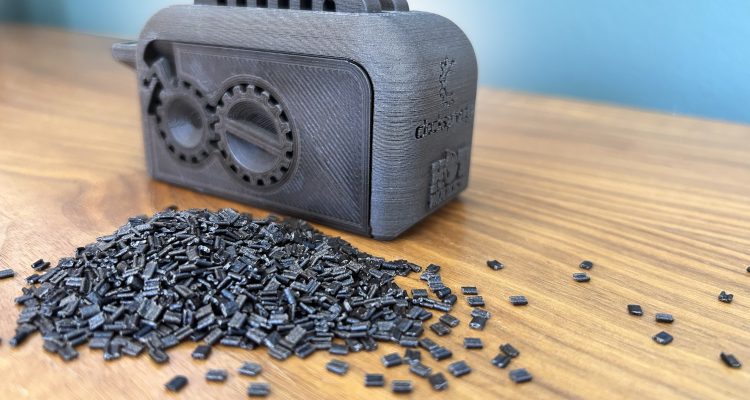KraussMaffei and Synergy Horizon Group developed a process to produce a 100% bio-based reinforced thermoplastic – lignin-reinforced polylactide.
Lignin is often considered a waste by-product of the bioethanol and wood and paper processing industries with almost 50 million tons being produced annually. 98% of this lignin is incinerated. KraussMaffei and Synergie Horizon partnered to repurpose waste lignin by developing biologically reinforced bioplastic with up to 30% lignin integrated into the polylactide (PLA) matrix.
At KraussMaffei’s new technical center in Laatzen, Germany, the development team successfully demonstrated the incorporation of up to 30% lignin into the PLA matrix using both the laboratory extruder, a ZE Blue Power 28, and the small ZE Blue Power 42 production compounder. When compared to pure PLA, the lignin-reinforced material increases flexural and tensile modulus by around 30%. Additionally, PLA biocompounds containing lignin have far superior degradation properties in comparison to pure PLA, biodegrading more than 90% in 99 days.
Lars Darnedde, Process Engineering Development Project Manager at KraussMaffei Extrusion, said, “With our compounding expertise and our project partner’s unique knowledge of lignin preparation, we have succeeded in incorporating up to 30% lignin into the PLA matrix and producing a compound with natural antioxidant capacity/activity, enhanced mechanical properties, and controlled biodegradability.”


